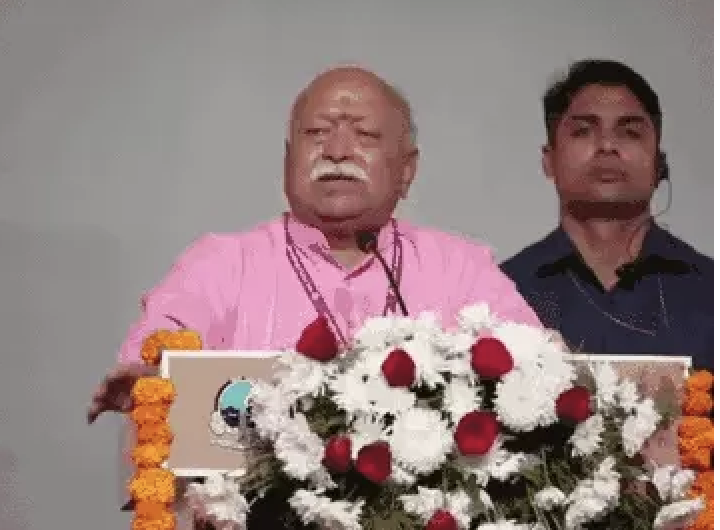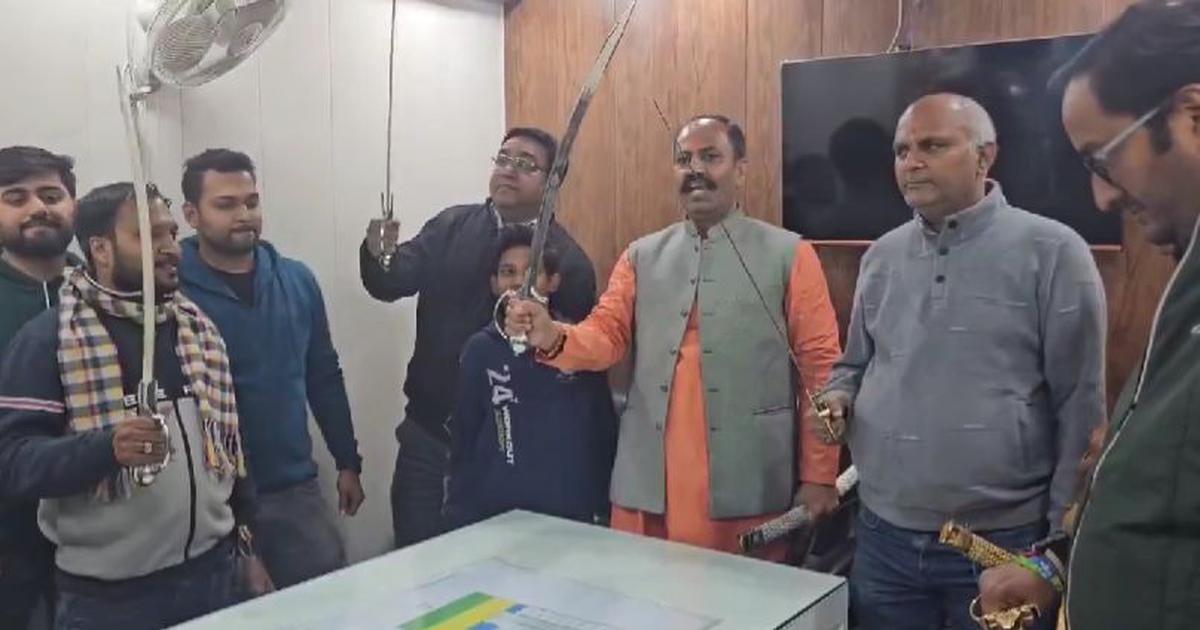
The ruling BJP’s assertion that it can guarantee India’s development better than its opponents has been a very important part of its claim to provide good government. As a result, the ruling party is vulnerable to charges that it has mismanaged India’s economy. The gap between assertion and reality has been made stark by the marked growth slowdown that the Indian economy has recently experienced, and the Narendra Modi government’s attendant failure to generate employment.
The BJP has of late prominently addressed a non-economic agenda – of advancing the Hindu majoritarian imprint upon the state – either due to its fundamental commitments or as an opportunistic political response to the weakening of the economy under its watch. The BJP has done so even at the risk of deepening sectarian and other divisions, which now stands realised with India shaken by protests against the Citizenship Amendment Act. However, a direct conflict exists between these two aspects of its agenda – the economic (which it loudly proclaims but shows mixed commitment towards) and the non-economic (which it does not announce but pursues assiduously).
Former Reserve Bank of India governor Raghuram Rajan was right to emphasise the idea that intolerance is also a threat to prosperity. For a period, India was branded as the world’s “fastest growing major economy”. This is a position which it has in recent years traded back and forth with China. But it was more securely the fastest growing large democracy, given that China was no competition there. This is not just a statement of political values, but also a signal to investors that in India, fissures, divisions, and tensions can and will be handled flexibly, providing the possibility of greater stability over the long run.
It is this aspect of India that has allowed it to maintain and consolidate a nation-state over seven decades. Indian capitalists may look at China with admiration, but its inability to guarantee that divisions within the country will be handled in a flexible way remains a source of doubts about its economic future. Political tensions may not have a first-order effect on economic outcomes in the short run but in the longer term, they create the possibility of potentially devastating disruptions, even if their likelihood is difficult or impossible to judge.
This may be seen from various perspectives. The possibilities for domestic commerce and investment depend on peace, which, in turn, depends on more than just electoral majorities and deployment of the police and the military. Having an environment that is not disrupted by social and political tensions and the costs they create – whether those that arise from an individual having to commute to work in fear or from threats to the security of property – is important for business, both domestic and foreign. Foreign investors may also be concerned about reputational issues. As much as they have a well-established willingness to put aside such concerns in search of profits, these must then be higher so as to justify investment.
It cannot be denied that such political concerns are a factor, and may, if mishandled, become a bigger one in determining the level of investment. Moreover, India continues to depend on foreign investors for its lifeblood – masked by its high foreign exchange reserves – because it can only finance its current account deficit through ongoing inflows from them. There are other direct fiscal costs, perhaps sizable, which arise from expenditure on repression.
Pushing the political vision
The Citizenship Amendment Act is one of the many measures aimed at incrementally advancing the BJP’s political vision, that of Hindutva, but which directly risks the other side of the Modi government’s proclaimed agenda. It is possible that the government had not even recognised that there exists a tension between these two sides of its opposing goals, but it is certain that they did not give importance to it. The unnecessary prioritisation of the citizenship law showed a mischievous interest in stoking social divisions.
If the intent was to actually offer refuge to persecuted minorities in neighbouring countries, then this could have been handled through a variety of administrative measures, which did not necessarily require new legislation. Many refugees deemed to be benefitted by the amended Citizenship Act could have had their existing residence or citizenship applications eased more simply by changing procedures, which have until now impeded them. Others who are not going to be benefitted by the law have similarly been affected by the refusal to entertain their citizenship applications, rather than by the impossibility of doing so, and as a result, had called for an easing of government procedures rather than new legislation.
In practice, many countries around the world admit refugees after determining their status individually. This determination takes into consideration the threats experienced by the group to which the individual belongs. India has used this approach in the past to incorporate earlier waves of migrants as long-term residents or even as citizens (both, in the case of Tibetans).
A softer approach of this kind (even if implemented in blatantly sectarian form as the Modi government seems to wish to do) would have made protection feasible on a selective basis without generating the strong reaction that the government has provoked by changing the law to incorporate its explicit preference for specific religious communities. The first best would have been to develop a principled and comprehensive refugee policy, which India has lacked, but the Modi government has not even mentioned this possibility, let alone advanced it.
Risking the development concerns
The government seems to have preferred to offer a provocation, perhaps because it seemed an opportunity to show political strength to supporters and opponents alike, to attempt to shore up its existing vote base and to create new ones. The safeguarding of economic prosperity and stability do not provide the reason for rejecting such a policy, since there are deep-seated political and moral reasons to do so in any case. Rather, the choice to advance the Citizenship Amendment Bill (CAB) shows the ultimate indifference of the Modi government to taking risks with the economic and developmental concerns that it supposedly values, and its eagerness instead to pursue a communal agenda. It is hard to take any other view, given the existence of the unexplored alternatives mentioned above.
The reaction to the Modi government’s action has been more ferocious than expected. This may be because the new citizenship law has made many more people feel threatened than are nominally affected (especially since the law has been paired with the possibility of a nationwide National Register of Citizens). Students and others also rightly see an affront to basic constitutional and civil values. The Modi government’s actions have, therefore, begun to risk the political frame for economic stability and prosperity. A political strategy that is so indifferent to the feelings of minorities, even as it claims to act on behalf of other minorities, is mischievous, to say the least. It does not show the seriousness required to balance considerations and make the trade-offs that are necessary for a country’s development.
Arguably, in politics, almost every action has a reaction, which depends in part on the psychology that exists, or is produced. The tearing up of India’s syncretistic civilisational fabric, in favour of an invented idea of political Hinduism, which dispenses with its rich and humane inheritances, may be a working strategy to keep power, but it is not a strategy for good governance, let alone for Ram Rajya. In fact, it looks as if the Modi government’s actions subvert its own slogans by giving rise, in specific areas, to minimum governance and maximum government. The sheer quantity of labour that will be required to establish the proposed NRC on a national scale, as well as the potential for devastating outcomes that it may have, including for unintended “collateral damage“, by falsely denying people their rights, could not be a more resounding instance of ‘solving’ a non-problem by creating a new and larger one.
Stoking conflict to create the permanent divisions that fuel a sectarian political movement is an old idea in politics, which has been theorised by various political philosophers (such as Carl Schmitt) but it is the opposite of what is needed to bring about ‘development for all and with all’, let alone with everyone’s trust (‘Sabka Saath, Sabka Vikas, Sabka Vishwas’). It is hardly surprising that a government that is creative in generating slogans lacks equal skill when it comes to weighing the real concerns of governance. A different mentality altogether is required for that. Almost 60 years ago, American journalist Selig Harrison wrote of India’s most dangerous decades, for which he was later thoroughly dismissed. But are those dangerous decades yet to come
This story first appeared in theprint.in






